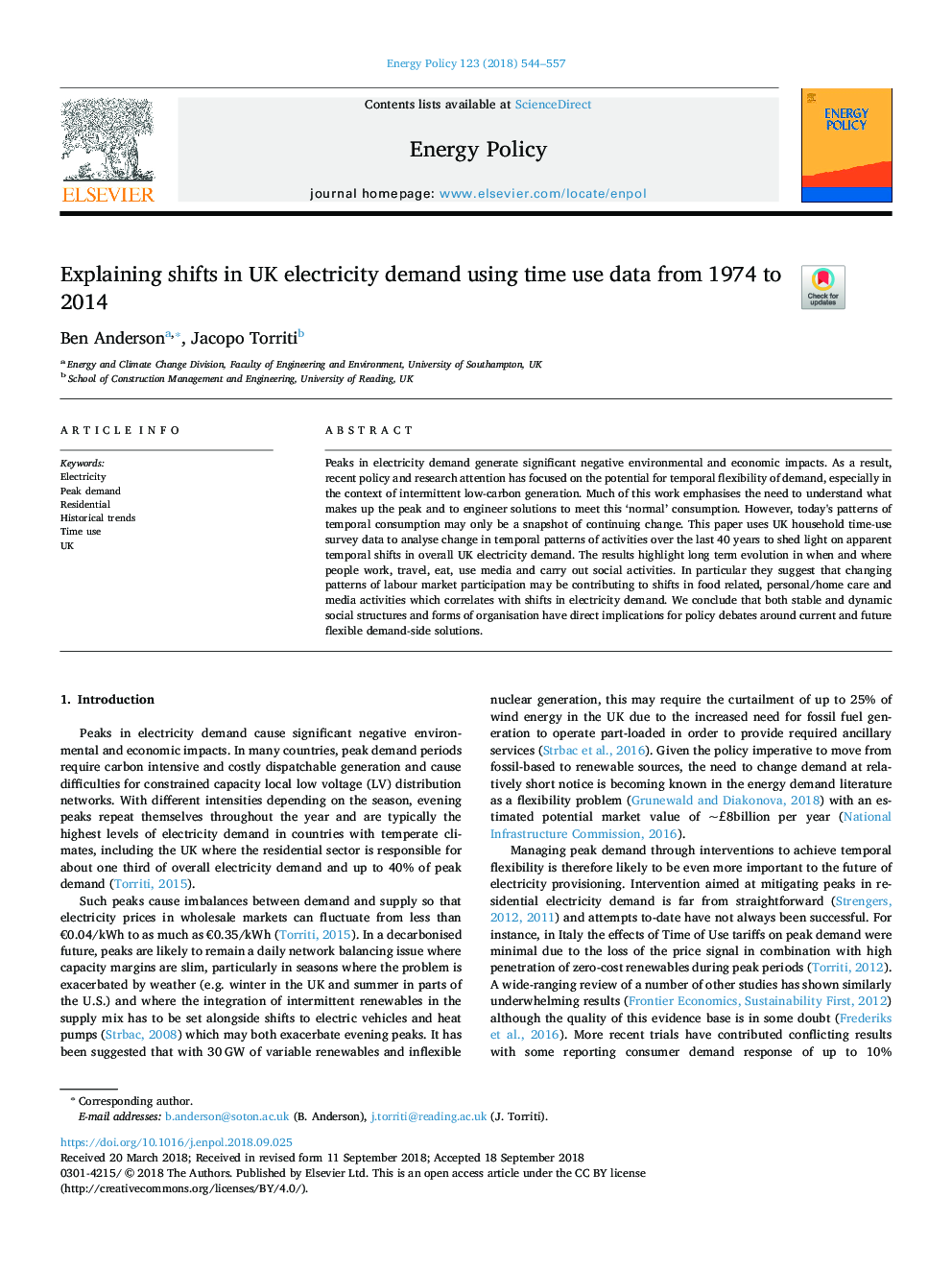| Article ID | Journal | Published Year | Pages | File Type |
|---|---|---|---|---|
| 11032287 | Energy Policy | 2018 | 14 Pages |
Abstract
Peaks in electricity demand generate significant negative environmental and economic impacts. As a result, recent policy and research attention has focused on the potential for temporal flexibility of demand, especially in the context of intermittent low-carbon generation. Much of this work emphasises the need to understand what makes up the peak and to engineer solutions to meet this 'normal' consumption. However, today's patterns of temporal consumption may only be a snapshot of continuing change. This paper uses UK household time-use survey data to analyse change in temporal patterns of activities over the last 40 years to shed light on apparent temporal shifts in overall UK electricity demand. The results highlight long term evolution in when and where people work, travel, eat, use media and carry out social activities. In particular they suggest that changing patterns of labour market participation may be contributing to shifts in food related, personal/home care and media activities which correlates with shifts in electricity demand. We conclude that both stable and dynamic social structures and forms of organisation have direct implications for policy debates around current and future flexible demand-side solutions.
Related Topics
Physical Sciences and Engineering
Energy
Energy Engineering and Power Technology
Authors
Ben Anderson, Jacopo Torriti,
